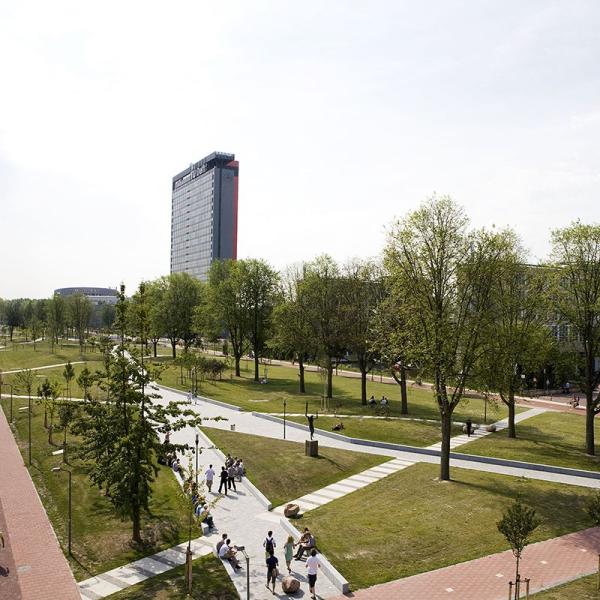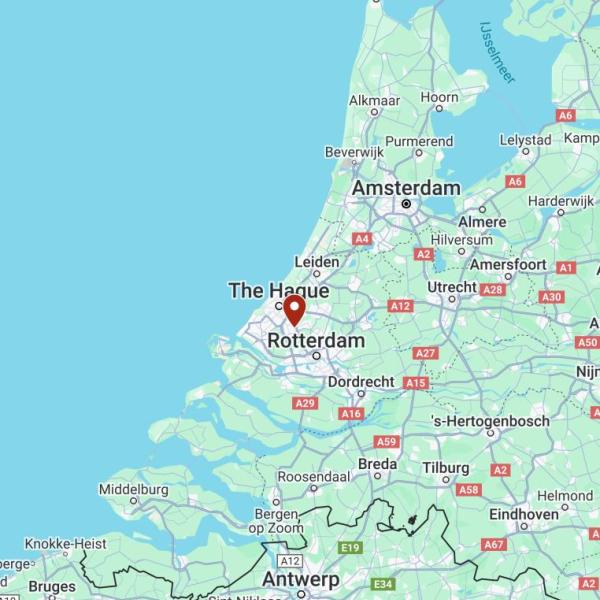Delft University of Technology


Who can go?
- Applied Science (engineering students) from UBC-V and UBC-O.
- CIVL students must have completed at least 6 terms of course work prior to going on Exchange
- UBC Students on exchange in their 4th year can take Masters level courses in English at Delft.
- UBC students may not study in the following TU Delft faculties: Architecture and the Built Environment and Electrical Engineering, Mathematics
Academic planning
Term dates
- UBC Term 1 (TU Delft Semester 1): September-January
- UBC Term 2 (TU Delft Semester 2): February-July
Areas of study available:
- Engineering
Course availability and restrictions
UBC students can only study in the following faculties at Delft:
- Faculty of Aerospace Engineering
- Faculty of Applied Sciences
- Faculty of Civil Engineering and Geosciences
- Faculty of Mechanical, Marine, and Materials Engineering
- UBC Students on exchange in their 4th year can take Masters level courses in English at Delft.
Please refer to the Coordinated International Experience page: https://pd.engineering.ubc.ca/coordinated-international-experience/eligible-courses/course-mapping/.
UBC-O students should speak to their faculty advisor.
See the link below to see a list of courses via the study guide at TU Delft, along with the faculty course lists. Please carefully review the "Course Restrictions."
Link to the courses via the study guide at TU Delft
Course equivalency Formula
TU Delft uses the European Credit Transfer System (ECTS) shared by all universities in the European Union. One academic year consists of 60 EC. One EC is equivalent to a study load of 28 hours (including lectures, laboratory courses, practical work, assignments, projects, private work, examinations or other assessment activities). Bachelor programmes at TU Delft consist of 180 EC and Master programmes, 120 EC.
Course load Information
- Students are allowed to choose their courses.
- An advisable course package should comprise between 24 and 30 EC (European Credits) per semester. Less than 24 EC is not acceptable, even if allowed by your home university
- TU Delft programmes are academically challenging and rigorous, therefore students are expected to be motivated and dedicated throughout their studies. Should the results of an exchange student appear to be unsatisfactory, they will be discussed with the student and the home institution.
Transfer credit
The transfer credit process takes approximately 16 weeks following each submission deadline. You should allow sufficient time to meet important deadlines that may affect you (e.g. application for graduation, registration in courses that require prerequisites that you took on exchange, entry to a major/honours program, etc.)
Search for previously approved courses
Additional note for language of instruction
The language of instruction for most bachelor programmes is Dutch. The Bachelor’s programmes Aerospace Engineering, Applied Earth Sciences, Computer Sciences and Engineering and Nanobiology are fully taught in English. There are over 250 available courses taught in English in other TU bachelor programmes. All Master courses are taught in English.
Student experience
Housing
Information on accommodation
Accessibility
Some destinations may be more accessible than others for students with disability-related accommodations. If you identify with having a disability or pre-existing health condition which could impact your participation, or if you require academic accommodation, please contact a Go Global advisor before applying to explore options that are best for you.
Equaldex
The Equality Index measures the current status of LGBTQ+ rights, laws, and freedoms
Finances and funding
While you’re learning abroad, you remain a UBC student and are eligible for UBC awards, scholarships, and financial assistance.
- 15 credits or equivalent full-time program tuition per term, paid to UBC
Financial Planning
- Cost of Living Calculator
- Budgeting for Exchange (UBCV)
- Money Matters (UBCO)
Awards & Scholarships
All students are automatically considered to receive either the Go Global Award ($1000) or Go Global Scholarship ($1500) for each term that they are abroad.
All awards and scholarships available through Go Global:
UBCV Students
UBCO Students